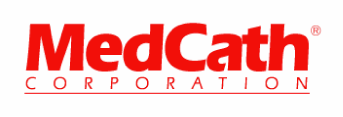Exhibit 99.1
MEDCATH CONTACTS:
| | | |
O. Edwin French James Harris | | James Harris |
| President and Chief Executive Officer | | Chief Financial Officer |
| (704) 708-6600 | | (704) 708-6600 |
O. Edwin French Named President and Chief Executive Officer
Charlotte, N.C. Feb. 21, 2006 – MedCath Corporation (NASDAQ: MDTH), a national provider of cardiovascular care, announced today O. Edwin French has been elected President and Chief Executive Officer, effective immediately.
“Since Ed joined us in October as interim Chief Operating Officer, he has immersed himself in our operations and provided immediate leadership to the Company,” said John T. Casey, who is retiring as MedCath’s CEO but will remain the Company’s employed chairman. “I personally asked Ed to become involved in MedCath, and I am confident that MedCath will be successful under his leadership.”
French, 59, served as President, Acute Care Hospital Division for Universal Health Services, Inc. until shortly before joining MedCath. He also served as President of French Healthcare Consulting, Inc., a consulting practice specializing in operations improvement and healthcare joint ventures. Before joining Universal Health Services, French served as President and Chief Operating Officer of Physician Reliance Network from 1997 to 2000, as Senior Vice President of American Medical International from 1992 to 1995, as Executive Vice President of Samaritan Health Systems of Phoenix from 1991 to 1992 and as Senior Vice President of Methodist Health Systems, Inc. in Memphis from 1985 to 1991.
“I am eager to take on the challenge of leading MedCath through its next stage of growth,” French said. “In my short time with the Company, I have been very impressed with the commitment of MedCath and its partners to patient-focused care. From that commitment, I will work to enhance our existing markets, and seek new partners and new markets to further our growth.”
“I have had the benefit of knowing and working with John Casey for over 20 years,” French continued. “His contributions to the Company have been
significant, and I am delighted to be working with the MedCath team to further enhance what he has put in place.”
MedCath Corporation, headquartered in Charlotte, N.C., develops, owns and operates hospitals in partnership with physicians, most of whom are cardiologists and cardiovascular surgeons. While each of its hospitals is licensed as a general acute care hospital, MedCath focuses on serving the unique needs of patients suffering from cardiovascular disease. Together with its physician partners who own equity interests in them, MedCath owns and operates 12 hospitals with a total of 727 licensed beds, located in Arizona, Arkansas, California, Louisiana, New Mexico, Ohio, South Dakota and Texas. In addition to its hospitals, MedCath provides cardiovascular care services in diagnostic and therapeutic facilities located in various states and through mobile cardiac catheterization laboratories.
# # #
Parts of this announcement contain forward-looking statements that involve risks and uncertainties. Although management believes that these forward-looking statements are based on reasonable assumptions, these assumptions are inherently subject to significant economic, regulatory and competitive uncertainties and contingencies that are difficult or impossible to predict accurately and are beyond our control. Actual results could differ materially from those projected in these forward-looking statements. We do not assume any obligation to update these statements in a news release or otherwise should material facts or circumstances change in ways that would affect their accuracy.
These various risks and uncertainties are described in detail in Exhibit 99.1 to our Annual Report on Form 10-K filed with the Securities and Exchange Commission on December 14, 2005. A copy of this report, including exhibits, is available on the Internet site of the Commission at http://www.sec.gov. These risks and uncertainties include, among others, the impact of legislation proposed to extend provisions of the Medicare Prescription Drug Improvement Act of 2003 and other healthcare reform initiatives, possible reductions or changes in reimbursements from government or third party payors that would decrease our revenue, a negative finding by a regulatory organization with oversight of one of our hospitals, and changes in medical or other technology and reimbursement rates for new technologies.
